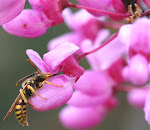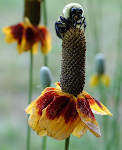Government researchers have found that high-fructose corn syrup, which is used as a sweetening agent in thousands of products, creates potentially dangerous levels of a toxic substance when heated.
The scientists – from USDA’s Agricultural Research Service in Tuscon and New Orleans and at the University of Wisconsin – were searching for a possible cause of Colony Collapse Disorder, a mysterious disease that has killed at least one-third of the nation’s commercial bees.
The team targeted the popular sweetener because it is widely used both with honey bees and those used primarily for vital crop pollination.
High-fructose corn syrup is produced by grinding corn to produce corn starch, then that powder is processed to yield corn syrup, which is almost entirely glucose. Enzymes or proteins are then added which changes the glucose into fructose.
It is the fructose that food producers use to sweeten their products and by commercial beekeepers to strengthen their bees, to increase honey production and as a food supplement when natural sources of nectar and pollen have diminished.
During repeated tests, the researchers found that when the HFCS is heated it forms hydroxymethylfurfural or HMF which can kill honeybees. Alarmingly, they found when temperatures rose, levels of HMF increased steadily in proportion.
The study, by Blaise LeBlanc, Gillian Eggleston and their colleagues, is published this week in ACS’ Journal of Agricultural and Food Chemistry. The authors said their work could also help keep the substance out of soft drinks and dozens of other human foods that contain HFCS.
“The data are important for commercial beekeepers . . . and because HFCS is incorporated as a sweetener in many processed foods, the data from this study are important for human health as well,” states the report which was funded by the National Honey Board.
Laboratory studies in Sweden published this year have linked HMF to DNA damage in humans, the USDA team reported. In addition, HMF breaks down in the body to other substances – daughter metabolites – potentially more harmful than the original substance.
For close to a decade, researchers throughout the world have been searching for the cause of the widespread destruction of bee colonies.
In the U.S., the growing shortage of honey has caused the increased importation of foreign products, much of which is wrongly labeled to avoid paying tariffs on Chinese honey. Some are adulterated with illegal antibiotics on violation of FDA regulations.
Here is a link to the study published by the ACS.





